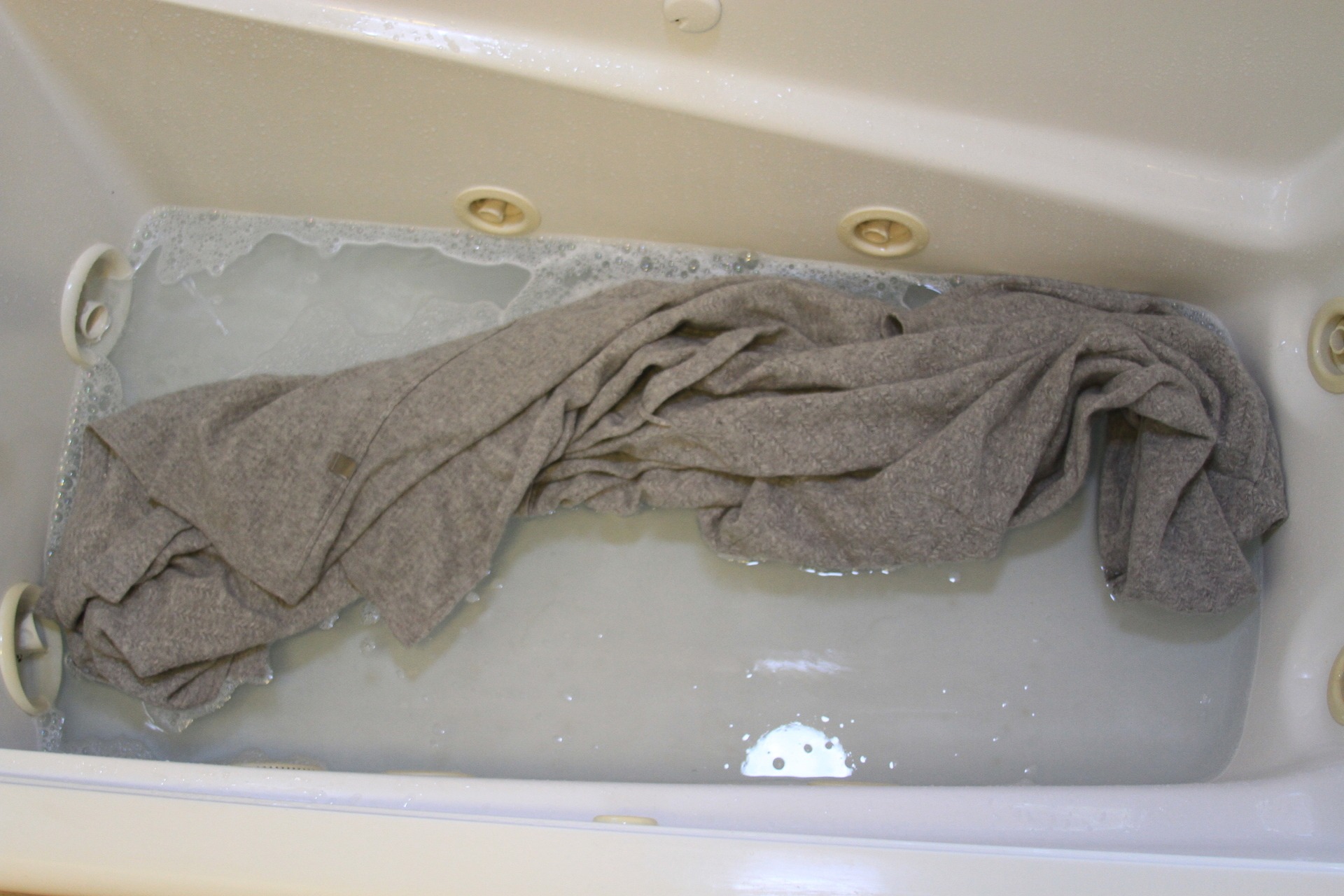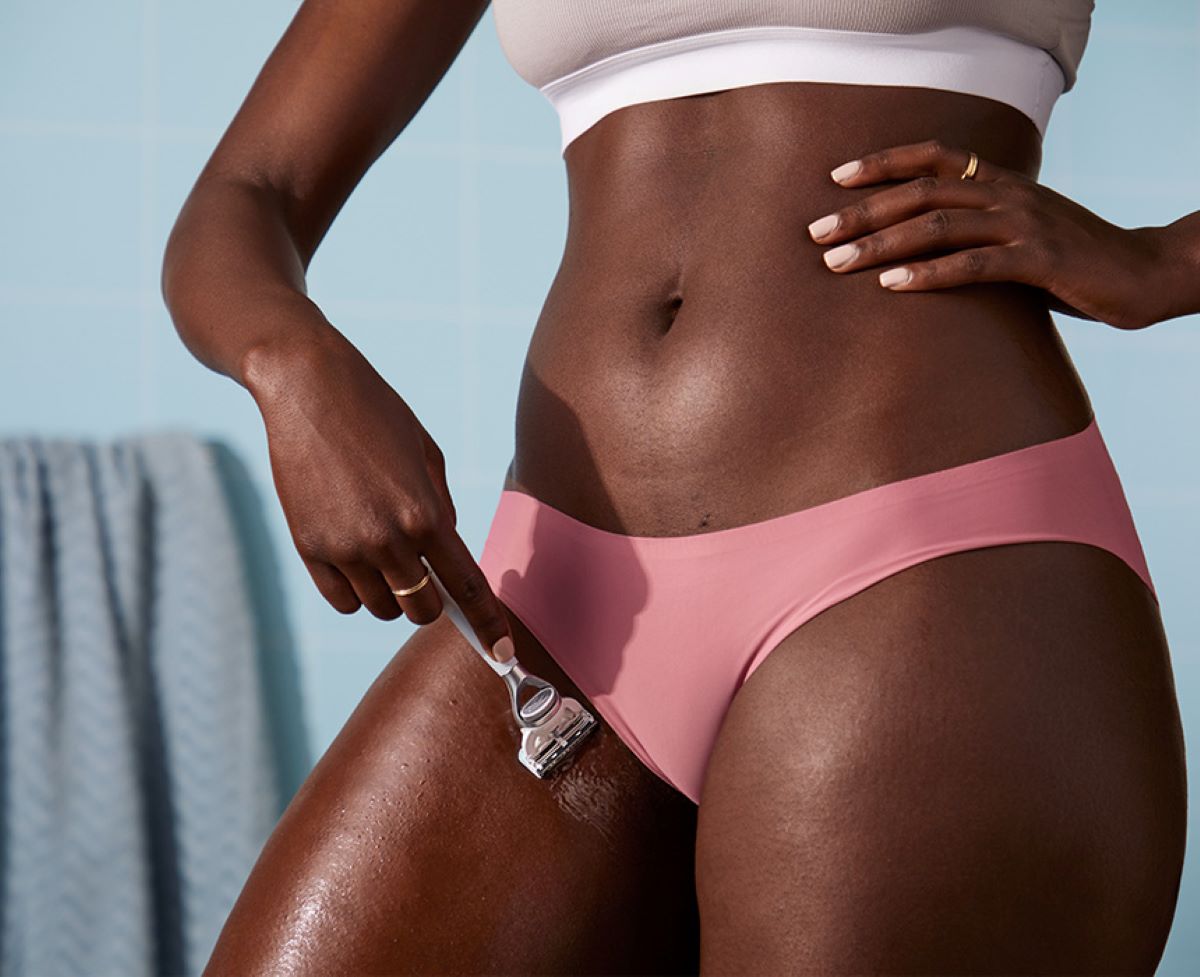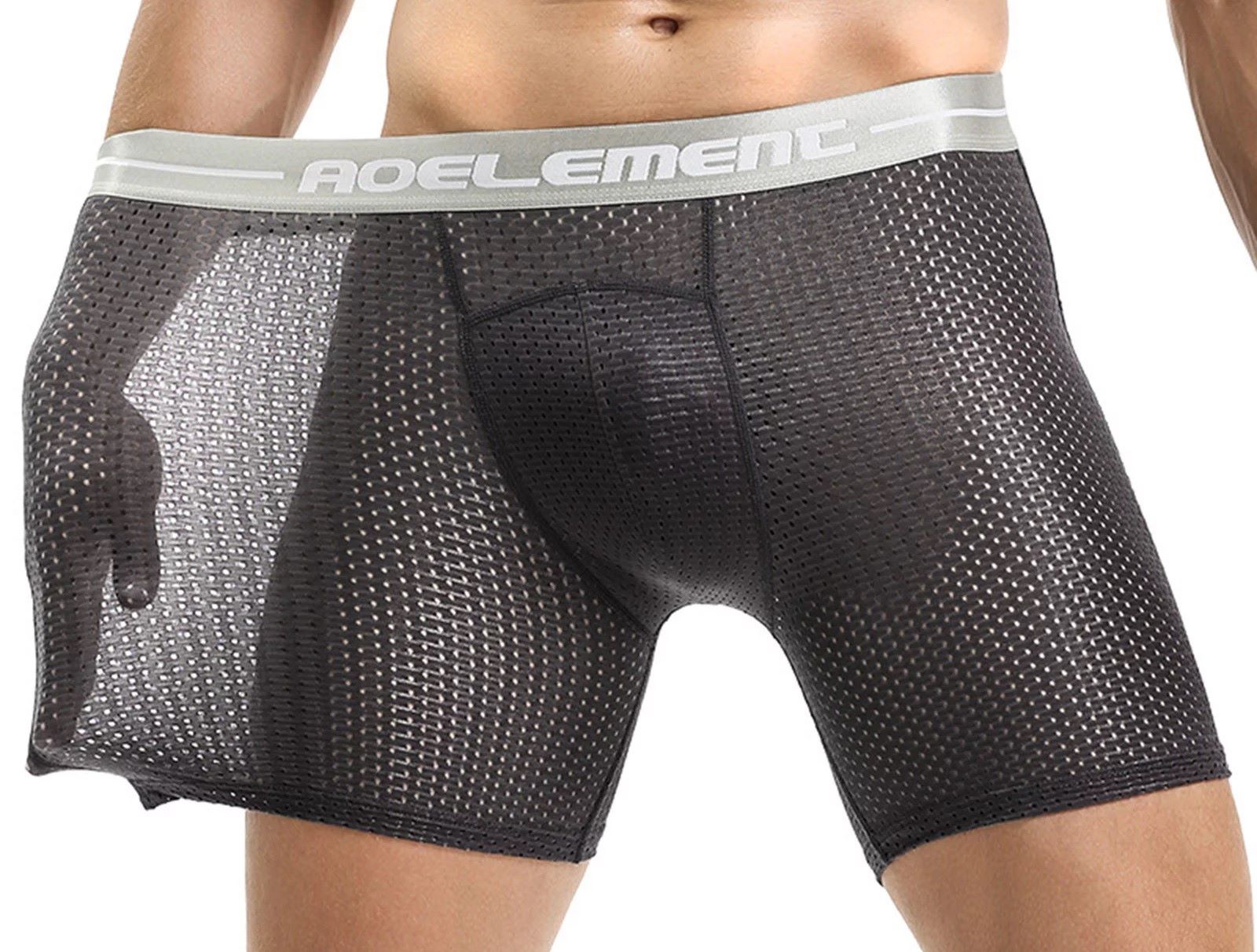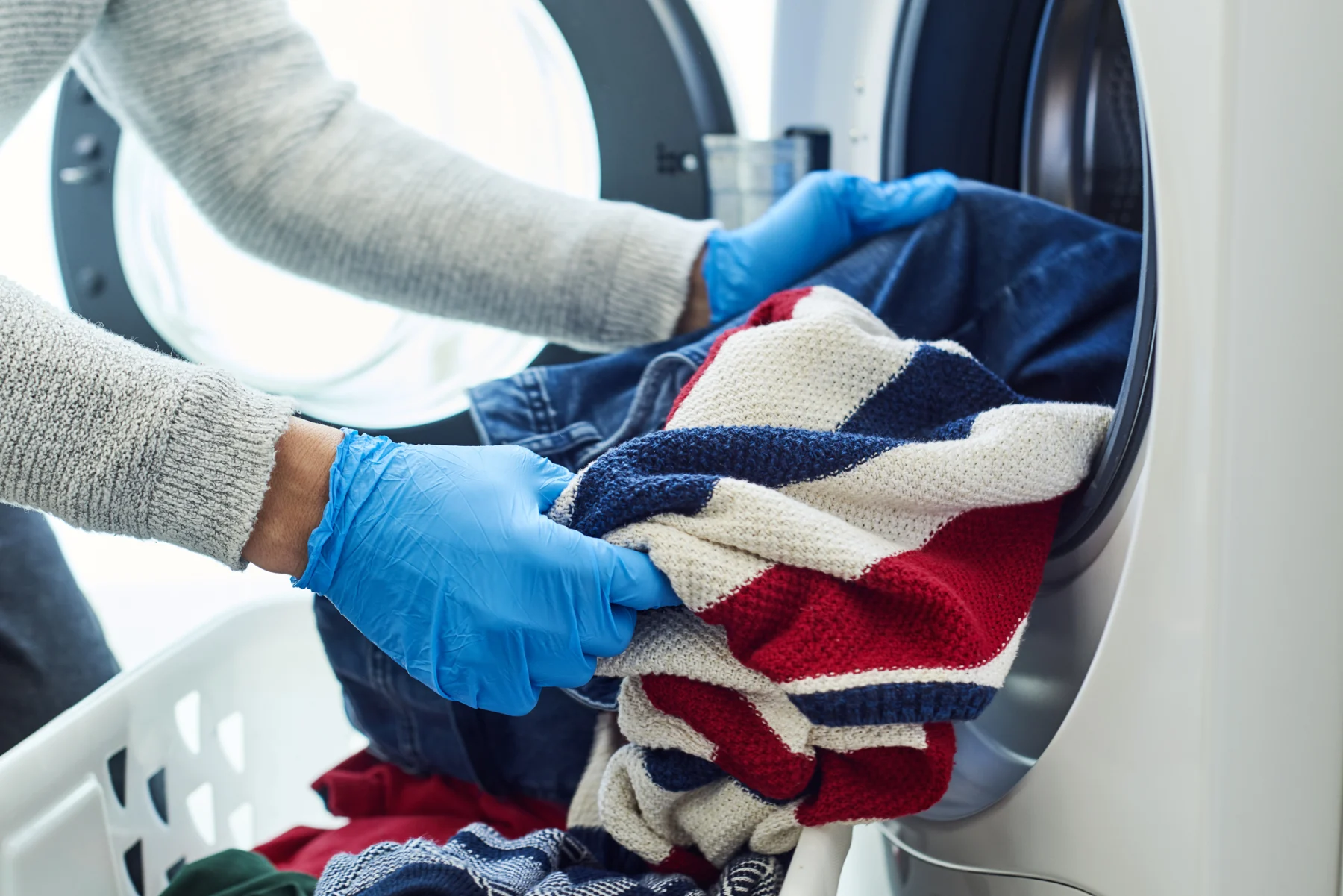

FAQs
How Often Should I Change Underwear
Published: July 31, 2023
Find out how often you should change your underwear. Get answers to general questions about underwear hygiene and maintenance.
(Many of the links in this article redirect to a specific reviewed product. Your purchase of these products through affiliate links helps to generate commission for Under-tec.com, at no extra cost. Learn more)
Table of Contents
Introduction
When it comes to personal hygiene, there are certain habits that we follow diligently, such as brushing our teeth, bathing regularly, and washing our hands. However, there is one aspect of hygiene that often gets overlooked: changing our underwear. While it may seem like a trivial matter, wearing clean underwear is essential for maintaining overall health and well-being. In this article, we will explore the importance of wearing clean underwear, how often you should change your underwear, and provide tips for maintaining good hygiene in this area.
Underwear serves as a protective barrier between our bodies and the clothes we wear. It helps absorb sweat and moisture, preventing it from contacting our skin directly. This is particularly important in areas where the skin is sensitive or prone to irritation, such as the genital area. Not changing your underwear regularly can lead to various hygiene-related issues, including bad odor, rashes, infections, and even urinary tract infections.
Factors such as personal hygiene practices, activity levels, climate, and overall health can influence how often one should change their underwear. As a general rule, it is recommended to change your underwear on a daily basis. By doing so, you ensure that you have a fresh, clean layer of protection against bacteria, sweat, and other impurities.
However, there are certain scenarios where it may be necessary to change your underwear more frequently. For example, if you engage in physical activities that cause excessive sweating, such as sports or exercising, changing your underwear immediately after can help keep you feeling fresh and prevent any potential moisture buildup.
Another factor to consider is the climate. In hot and humid weather, sweat production increases, making it essential to change your underwear more frequently to prevent bacterial growth and unpleasant odors. On the other hand, during colder seasons or in dry climates, you may be able to extend the time between underwear changes as long as you maintain good personal hygiene practices.
Furthermore, individuals with conditions such as urinary incontinence, menstruation, or excessive vaginal discharge may need to change their underwear more frequently to maintain cleanliness and prevent infections. It is important to listen to your body’s needs and prioritize your personal hygiene accordingly.
Importance of Wearing Clean Underwear
Wearing clean underwear is not just about personal hygiene; it is an essential part of maintaining your overall health and well-being. Let’s take a closer look at why wearing clean underwear is so important:
Prevention of Infections: Dirty and soiled underwear can harbor bacteria, fungi, and other microorganisms that can cause infections. By wearing clean underwear, you minimize the risk of developing infections in sensitive areas such as the genital region. This is particularly crucial for women who are more prone to urinary tract infections and yeast infections.
Odor Control: Sweat and bodily fluids can accumulate in underwear over time, leading to unpleasant odors. Changing your underwear regularly ensures that you stay fresh and odor-free throughout the day. It also helps to prevent embarrassing situations and boosts your self-confidence.
Improvement in Skin Health: Wearing dirty underwear can contribute to skin irritation, rashes, and itching. By changing your underwear daily, you reduce the likelihood of irritants coming into contact with your skin, leading to healthier skin in the long run.
Maintaining Proper Hygiene: Clean underwear is a crucial aspect of personal hygiene. It helps to maintain cleanliness and prevents the accumulation of sweat, dead skin cells, and other bodily waste that can attract bacteria and cause infections. By wearing clean underwear, you are prioritizing your health and well-being.
Comfort and Freshness: Wearing clean underwear not only feels more comfortable but also provides a sense of freshness. It allows your skin to breathe and reduces the risk of chafing and discomfort that can arise from prolonged wear of dirty underwear.
Social and Intimate Relationships: Hygiene plays a significant role in our social interactions and intimate relationships. Wearing clean underwear demonstrates respect for ourselves and others, ensuring that we are presentable and maintaining a level of cleanliness that is expected in personal interactions.
By understanding the importance of wearing clean underwear, you can prioritize this aspect of personal hygiene and make it a regular part of your daily routine. It is not only beneficial for your health but also contributes to your overall comfort, confidence, and well-being.
Factors to Consider When Changing Underwear
While changing your underwear on a daily basis is generally recommended, there are several factors to consider that may influence how often you should change your underwear. Understanding these factors can help you establish a routine that suits your needs and promotes good hygiene. Let’s explore some key considerations:
Personal Hygiene Practices: Your personal hygiene habits play a significant role in determining how often you should change your underwear. If you prioritize cleanliness and maintain good hygiene practices, changing your underwear daily is usually sufficient. However, if you engage in activities like sweating excessively, it may be necessary to change more frequently to maintain freshness.
Activity Level: The level of physical activity you engage in daily can impact how often you should change your underwear. If you participate in activities that make you sweat heavily, such as exercising or working in hot environments, it is advisable to change your underwear immediately after to prevent the buildup of sweat, bacteria, and odor.
Climate and Weather Conditions: The climate and weather in your location can influence how often you need to change your underwear. In hot and humid areas, where sweat production is higher, changing your underwear more frequently is crucial to prevent bacterial growth and maintain comfort. Conversely, in cooler or drier climates, you might be able to extend the time between changes, as long as you prioritize personal hygiene and cleanliness.
Overall Health: Your overall health and any specific health conditions you may have can impact underwear changing frequency. Individuals with conditions like urinary incontinence, excessive vaginal discharge, or menstruation may need to change their underwear more frequently to maintain hygiene and prevent infections. It’s important to listen to your body and adjust accordingly to maintain optimal cleanliness.
Quality of Underwear: The quality and fabric of your underwear can also affect changing frequency. Breathable fabrics like cotton allow better airflow and moisture absorption, reducing the risk of bacterial growth and odor. High-quality underwear tends to last longer, maintaining its freshness and shape, which can extend the time between changes.
Skin Sensitivity and Allergies: If you have sensitive skin or allergies, it is important to change your underwear regularly to avoid irritation or allergic reactions. Clean underwear helps minimize contact with potential irritants and maintain healthy skin in sensitive areas.
By considering these factors, you can establish a routine for changing your underwear that aligns with your lifestyle, promotes cleanliness, and ensures optimal comfort and hygiene. It is important to prioritize regular changes and maintain good personal hygiene practices for overall well-being.
Daily Underwear Changing Recommendations
Changing your underwear on a daily basis is a hygiene practice that is widely recommended. It helps maintain cleanliness, freshness, and comfort throughout the day. While individual preferences and circumstances may vary, here are some general recommendations for daily underwear changing:
Start Fresh Every Day: Begin each day with a clean pair of underwear. This ensures that you have a fresh, hygienic layer that absorbs sweat and prevents the accumulation of bacteria and odor throughout the day.
Change After Physical Activities: If you engage in activities that cause excessive sweating or physical exertion, it is best to change your underwear immediately afterward. This helps prevent moisture buildup, which can lead to discomfort, skin irritation, and the growth of bacteria.
Consider Climate and Weather: Hot and humid climates increase sweat production, making it necessary to change your underwear more frequently to maintain freshness and prevent bacterial growth. Adjust your changing routine based on the weather conditions to stay comfortable and hygienic.
Panty Liners and Menstrual Hygiene: During menstruation, it is essential to change your underwear frequently to manage proper menstrual hygiene. Using panty liners or sanitary pads can help keep your underwear clean and fresh throughout the day. Change them as needed to maintain comfort and cleanliness.
Prioritize Hygiene in Intimate Areas: Always remember to prioritize cleanliness in intimate areas. Thoroughly clean and dry your genital area before putting on a fresh pair of underwear to prevent the growth of bacteria and reduce the risk of infections.
Choose Comfortable Fabrics: Opt for underwear made from breathable, moisture-wicking fabrics like cotton. These materials allow better airflow, prevent excessive sweating, and promote overall comfort. Avoid synthetic fabrics that can trap moisture and contribute to bacterial growth and odor.
Replace Worn-Out Underwear: Regularly inspect your underwear for signs of wear and tear, such as stretched elastic or holes. Replace worn-out underwear promptly to maintain optimal comfort, hygiene, and support.
Personalize According to Preferences: Apart from these general recommendations, it is essential to personalize your daily underwear changing routine according to your preferences and needs. Listen to your body and prioritize good hygiene practices that make you feel comfortable and confident throughout the day.
Remember, maintaining clean and fresh underwear is a small but significant step towards overall hygiene and well-being. By following these daily underwear changing recommendations, you can ensure optimal comfort, prevent infections, and promote good personal hygiene.
Special Circumstances for Changing Underwear
While changing your underwear on a daily basis is the general recommendation, there are certain special circumstances where it becomes even more crucial to prioritize cleanliness and hygiene. Let’s explore some of these circumstances and the importance of changing underwear in each situation:
Urinary Incontinence: For individuals who experience urinary incontinence, changing underwear frequently is necessary to maintain cleanliness and prevent skin irritation. Urine can cause odor and discomfort if allowed to remain in contact with the skin for long periods. Changing your underwear as soon as possible after an episode of incontinence helps maintain freshness and hygiene.
Excessive Vaginal Discharge: Women who experience excessive vaginal discharge, whether due to hormonal changes, infections, or other factors, should change their underwear regularly to manage hygiene effectively. Excess moisture and discharge can lead to odor, skin irritation, and an increased risk of infections. Changing underwear frequently helps to keep the vaginal area clean and dry.
Overnight Sweating: Some individuals may experience excessive sweating during the night, leading to damp underwear in the morning. To maintain freshness and prevent the growth of bacteria, it is advisable to change into clean underwear in the morning. This helps to start the day feeling clean, comfortable, and free from any residual sweat or odor.
Menstruation: During menstruation, it is essential to change your underwear regularly to manage proper menstrual hygiene. Menstrual blood can lead to odor and discomfort if left in contact with the skin for extended periods. Using pads or tampons along with changing underwear frequently helps maintain cleanliness and prevent odors or potential infections.
Postpartum Period: After giving birth, women often experience increased vaginal discharge, known as lochia. This discharge can be heavy and may last for several weeks. It is important to change underwear frequently during this period to ensure proper hygiene and minimize the risk of infection.
Medical Procedures or Surgery: If you have undergone any medical procedures or surgery in the genital or perineal area, it is vital to follow the specific instructions given by your healthcare provider regarding changing your underwear. They may recommend more frequent changes to reduce the risk of infection and promote proper healing.
Every individual’s circumstances are unique, and it is important to assess and address specific needs for cleanliness and hygiene. By understanding these special circumstances and taking appropriate measures, you can maintain optimal cleanliness, minimize discomfort, and reduce the risk of infections or other complications.
Signs That Indicate It’s Time to Change Your Underwear
While changing your underwear on a daily basis is a good hygiene practice, there are also certain signs that indicate it’s time to change your underwear. Paying attention to these signs helps ensure optimal cleanliness, comfort, and overall hygiene. Here are some common signs:
Foul Odor: If you notice a persistent and unpleasant odor coming from your underwear, it’s a clear indication that it’s time to change. Odor is often caused by bacteria and sweat buildup, and changing into a fresh pair of underwear helps eliminate the smell and maintain a fresh and clean feeling.
Visible Stains: Sometimes, accidental leaks or stains can occur, particularly during menstruation or if you have urinary incontinence. If you notice visible stains on your underwear, it’s a clear sign that it’s time to change. Changing into clean underwear helps prevent further staining and promotes good hygiene.
Feeling Damp or Moist: If your underwear feels consistently damp or moist, it’s an indication that it’s time to change. Moisture can create an environment where bacteria thrive, leading to odor and potential infections. Changing into dry underwear helps maintain comfort and reduce the risk of bacterial growth.
Discomfort or Itchiness: If you notice persistent discomfort, itching, or irritation in the genital area, it may be a sign that your underwear is causing friction or that it’s time for a change. Changing into clean underwear made from breathable fabrics can help alleviate discomfort and promote better skin health.
Worn Out or Damaged Fabric: Over time, the elastic may stretch, or the fabric of your underwear may become worn out or damaged. If you notice any signs of wear and tear, such as stretched-out waistbands or holes, it’s time to replace your underwear. Worn-out underwear may not provide sufficient support or protection, and changing them ensures optimal comfort and hygiene.
Extended Period of Wear: If you’ve been wearing the same pair of underwear for an extended period, such as through the night or throughout the day, it’s recommended to change into fresh underwear. Regular changing helps maintain cleanliness, prevents bacterial growth, and promotes overall hygiene.
By paying attention to these signs, you can ensure that you change your underwear promptly when needed. Regular changes help maintain cleanliness, prevent unpleasant odors, discomfort, and potential infections, and promote overall comfort and hygiene.
Tips for Maintaining Clean Underwear
Keeping your underwear clean is essential for maintaining good hygiene and overall comfort. By following these tips, you can ensure that your underwear stays fresh, odor-free, and free from bacteria:
Change Daily: As a general rule, change your underwear daily to maintain cleanliness and freshness. Start each day with a clean pair to ensure optimal hygiene throughout the day.
Wash with Care: When laundering your underwear, follow the care instructions provided by the manufacturer. Choose a mild detergent and avoid using harsh chemicals or bleach, as they can damage the fabric and irritate the skin.
Separate Colors: Sort your underwear by color to prevent bleeding or color transfer during washing. Separating dark and light-colored undergarments also helps them maintain their original appearance.
Use Gentle Cycle: When using a washing machine, opt for a gentle cycle to protect the elasticity and integrity of the fabric. Excessive agitation can cause wear and tear, leading to premature damage.
Avoid Excessive Heat: High heat can shrink and damage underwear, especially those made from delicate fabrics like lace or elastic. Instead, air dry your underwear or use a low-heat setting in the dryer.
Replace Worn-Out Underwear: Regularly inspect your underwear for signs of wear and tear, such as stretched-out elastic or holes. Replace any worn-out or damaged underwear promptly to maintain comfort and hygiene.
Choose Breathable Fabrics: Opt for underwear made from breathable fabrics like cotton. These fabrics allow better airflow, reduce moisture buildup, and prevent bacterial growth. Avoid synthetic materials that can trap moisture and promote bacterial growth.
Avoid Tight-Fitting Underwear: Tight-fitting underwear can restrict airflow and increase moisture buildup. Choose underwear that offers a comfortable fit without being too tight, allowing for breathability and reducing the risk of irritation or infections.
Maintain Personal Hygiene: Good personal hygiene practices are essential for maintaining clean underwear. Regularly clean and dry your genital area before putting on clean underwear. This helps minimize the transfer of bacteria and prevents unpleasant odors.
Keep Extra Pairs Handy: When traveling or engaging in activities that cause excessive sweating, it’s a good idea to have spare pairs of underwear on hand. Being prepared ensures that you can change into clean underwear whenever needed, promoting freshness and comfort.
By following these tips, you can maintain clean and fresh underwear, promoting good hygiene, comfort, and overall well-being. Prioritize cleanliness and ensure that your underwear remains a reliable layer of protection against bacteria, sweat, and other impurities.
Conclusion
Maintaining clean underwear is a vital aspect of overall hygiene and personal well-being. By changing your underwear regularly, you can minimize the risk of infections, unpleasant odors, and discomfort. It is recommended to change your underwear on a daily basis, but certain factors such as personal hygiene practices, activity level, climate, and health conditions may require more frequent changes.
Throughout the day, it’s important to pay attention to signs that indicate it’s time to change your underwear, such as foul odor, visible stains, dampness, discomfort, or worn-out fabric. By addressing these signs promptly, you can ensure optimal cleanliness and comfort.
Additionally, following tips for maintaining clean underwear can contribute to better hygiene practices. Washing your underwear with care, separating colors, choosing breathable fabrics, and replacing worn-out underwear are all important habits to adopt. Prioritizing good personal hygiene and keeping spare pairs of underwear handy can also go a long way in maintaining optimal comfort and cleanliness.
Remember that maintaining clean underwear is not just a matter of personal hygiene; it is a reflection of our respect for ourselves and consideration for others. By prioritizing clean underwear, we create a positive impact on our social interactions and intimate relationships.
So, make it a habit to change your underwear regularly, listen to your body’s needs, and adapt to special circumstances. By doing so, you can ensure that your underwear remains a reliable and hygienic layer of protection, promoting your overall health, comfort, and confidence every day.










